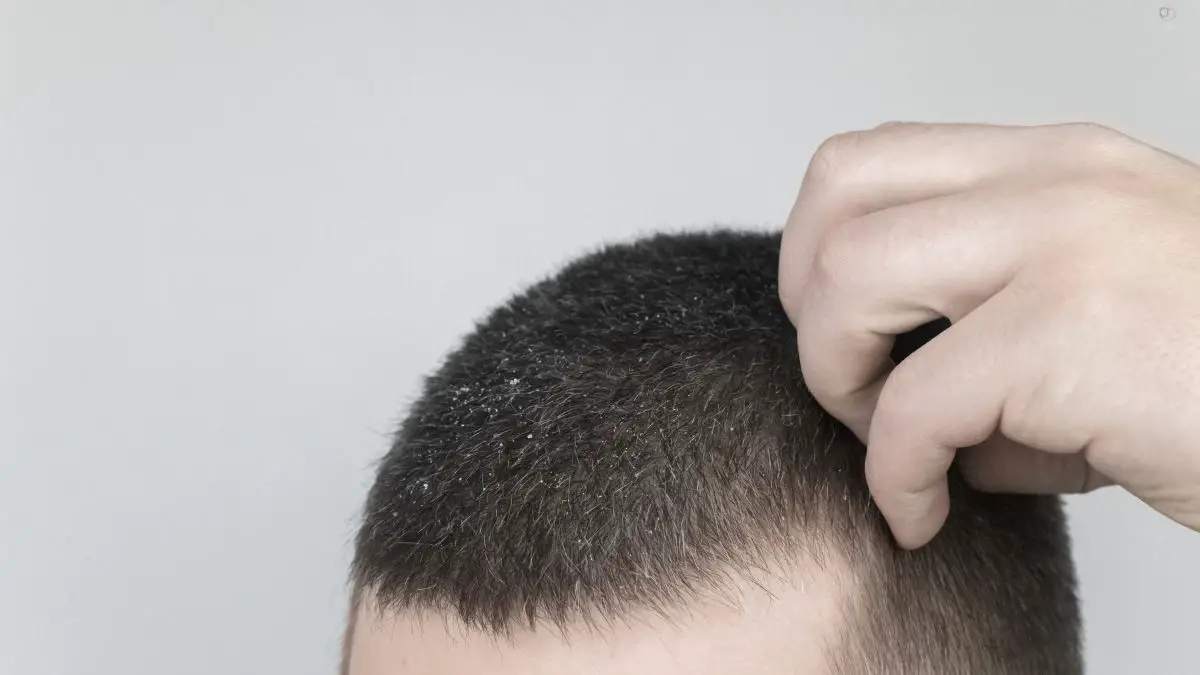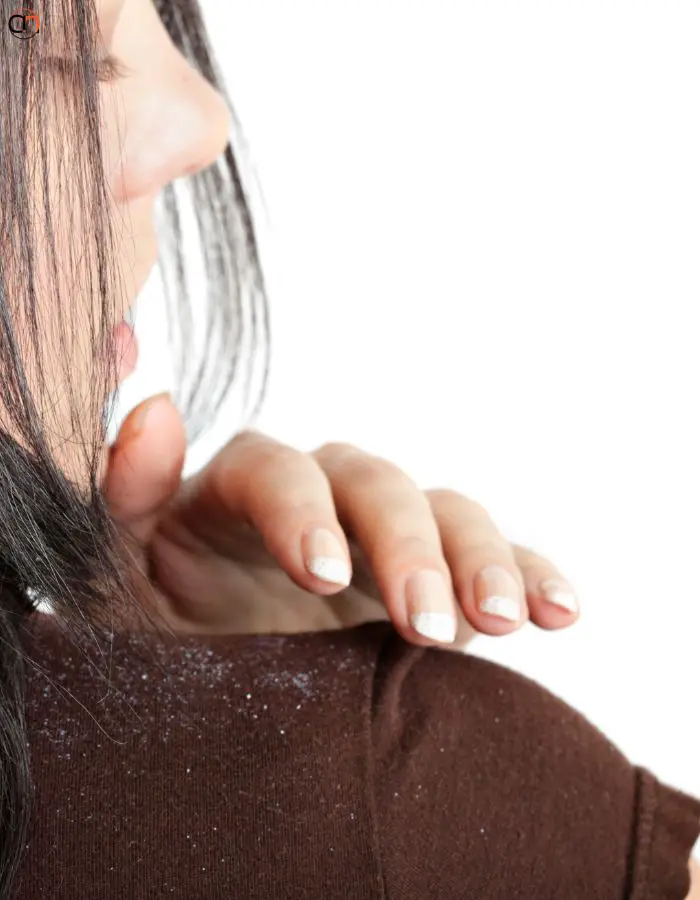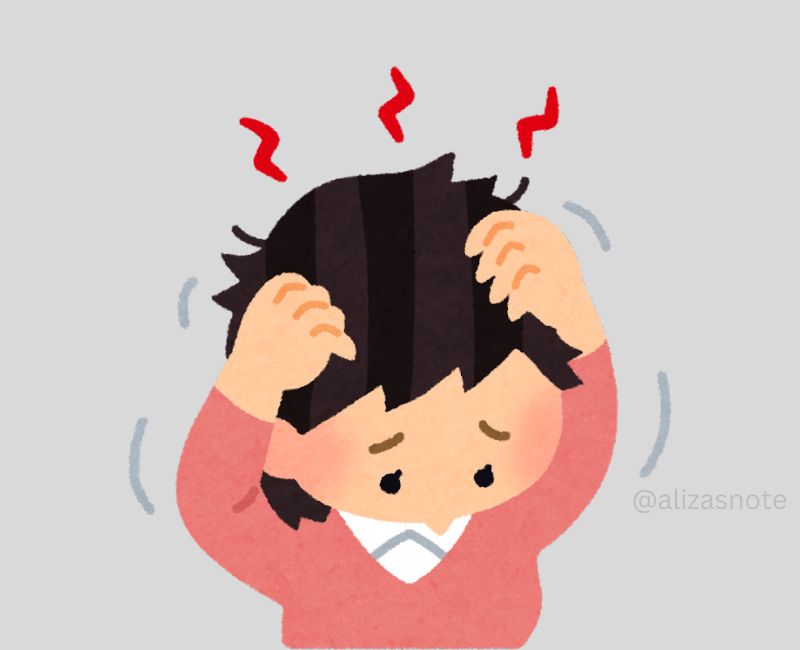How To Treat Dandruff With Vinegar

Dandruff in dogs can be an irritating and uncomfortable issue, but there’s a simple, natural remedy that many pet owners swear by—vinegar.
Apple cider vinegar, in particular, is known for its ability to balance the skin’s pH, reduce itching, and help treat dry, flaky skin.
With its antifungal and antibacterial properties, vinegar can also assist in combating underlying infections that might contribute to dandruff.
How treat dandruff with vinegar vinegar to treat your dandruff, the benefits of this natural solution, and tips for incorporating it into your skincare routine for healthier, more comfortable skin.
How Vinegar Works:
Vinegar, especially apple cider vinegar, is a natural remedy with powerful properties that make it effective for treating dandruff in scalp.
One of its primary benefits is its ability to balance the skin’s pH, which helps create an environment less favorable for dandruff-causing fungi and bacteria. Its antifungal and antibacterial properties work to combat any underlying infections that may contribute to dandruff.
Additionally, vinegar helps to break down and remove excess oil, dirt, and dead skin cells, which can cause flakiness.
It soothes itchy, irritated skin, providing immediate relief for your skin. When diluted and applied properly, vinegar is a safe and gentle way to treat dandruff naturally, leaving your skin healthier and more comfortable.
Types of Vinegar to Use:
Apple cider vinegar is the most recommended type for treating dandruff to its natural antifungal, antibacterial, and pH-balancing properties.
Choose organic, unfiltered apple cider vinegar, as it retains beneficial enzymes and nutrients that support healthy skin.
Avoid using distilled white vinegar, as it can be too harsh and may lack the soothing qualities of apple cider vinegar. Always dilute vinegar with water before applying it to your dog’s skin to ensure it’s safe and gentle for effective dandruff treatment.
How To treat dandruff with vinegar:
Vinegar, particularly apple cider vinegar (ACV), is a natural and affordable remedy for dandruff. It works by balancing the scalp’s pH, reducing fungus, and soothing irritation. Here’s a step-by-step guide to treat dandruff with vinegar on skin using vinegar:
1. Why Use Vinegar for Dandruff?
- Balances pH: Vinegar helps restore the scalp’s natural pH, making it less hospitable to dandruff-causing yeast.
- Antifungal Properties: It fights Malassezia, the fungus often responsible for dandruff.
- Exfoliates Dead Skin: Vinegar helps break down dead skin cells, reducing flakes.
2. Choose the Right Vinegar
- Use apple cider vinegar (ACV), which is gentle and effective. Organic, unfiltered ACV with the “mother” is best because it contains beneficial enzymes and nutrients.
- Avoid using undiluted white vinegar, as it may be too harsh for the skin.
3. Prepare the Vinegar Solution
- Dilute the vinegar to prevent irritation. Mix one part apple cider vinegar with two parts water in a spray bottle or bowl. You can adjust the ratio slightly if you have sensitive skin.
4. Apply the Vinegar Solution
- For Scalp Treatment:
- Shampoo your hair with a mild, sulfate-free shampoo and rinse thoroughly.
- Apply the vinegar solution directly to your scalp, either by spraying it or pouring it carefully.
- Massage the solution gently into your scalp using your fingertips.
- For Other Skin Areas:
- Use a cotton pad soaked in the vinegar solution to dab affected areas. Avoid broken skin or wounds.
5. Let It Sit
- Allow the vinegar solution to sit for 10-15 minutes. This gives it time to kill fungi, exfoliate dead skin, and soothe irritation.
6. Rinse Thoroughly
- Rinse your scalp or skin with lukewarm water to remove the vinegar. Ensure no residue remains, as it can cause dryness.
7. Moisturize
- Follow up with a lightweight, non-comedogenic moisturizer for skin or a leave-in conditioner for hair. This prevents dryness and keeps your skin hydrated.
8. Repeat as Needed
- Use this treatment 1-2 times per week. Overuse can lead to irritation, so avoid daily applications.
9. Monitor for Reactions
- If you notice redness, itching, or worsening dandruff, stop using vinegar and consult a dermatologist.
Tips for Best Results:
- Combine the vinegar treatment with regular exfoliation using a gentle scrub.
- Drink plenty of water and maintain a healthy diet rich in omega-3s to promote skin health.
- Avoid harsh hair products or skincare products that could irritate your skin further.
Apple cider vinegar is a simple, effective, and natural way to manage dandruff. With regular use and proper care, you can enjoy healthier, flake-free skin and scalp.
Last Call:
- Dandruff can be a frustrating condition, but apple cider vinegar offers a natural and effective solution.
- With its antifungal, antibacterial, and pH-balancing properties, vinegar helps eliminate dandruff-causing fungi, soothe irritated skin, and reduce flakes.
- It’s simple to use—just dilute vinegar with water, apply it to the scalp or affected areas, let it sit, and rinse thoroughly.
- Regular use can help restore healthy, flake-free skin.
Call to Action:
- Ready to try vinegar for dandruff relief?
- Join us on Pinterest and share your results. Remember, if dandruff persists or worsens, consult a dermatologist for professional advice.
- Healthy skin starts with simple, natural care!
Get More; How To Reduce Dandruff
FAQs:
Q. Can vinegar help treat dandruff?
Yes, apple cider vinegar is effective for treating dandruff due to its antifungal, antibacterial, and pH-balancing properties.
Q. How do I use vinegar for dandruff?
Dilute apple cider vinegar with water (1 part vinegar to 2 parts water), apply to the scalp, let it sit for 10-15 minutes, and rinse thoroughly.
Q. How often should I use vinegar for dandruff?
Use it 1-2 times per week. Overuse may irritate the scalp.
Q. Can I use white vinegar instead of apple cider vinegar?
Apple cider vinegar is preferred because it’s gentler and more beneficial for the skin.
Q. Is vinegar safe for sensitive skin?
When diluted properly, vinegar is safe, but test a small area first to avoid irritation.
Q. What if dandruff persists after using vinegar?
If dandruff doesn’t improve or worsens, consult a dermatologist for further evaluation and treatment.






